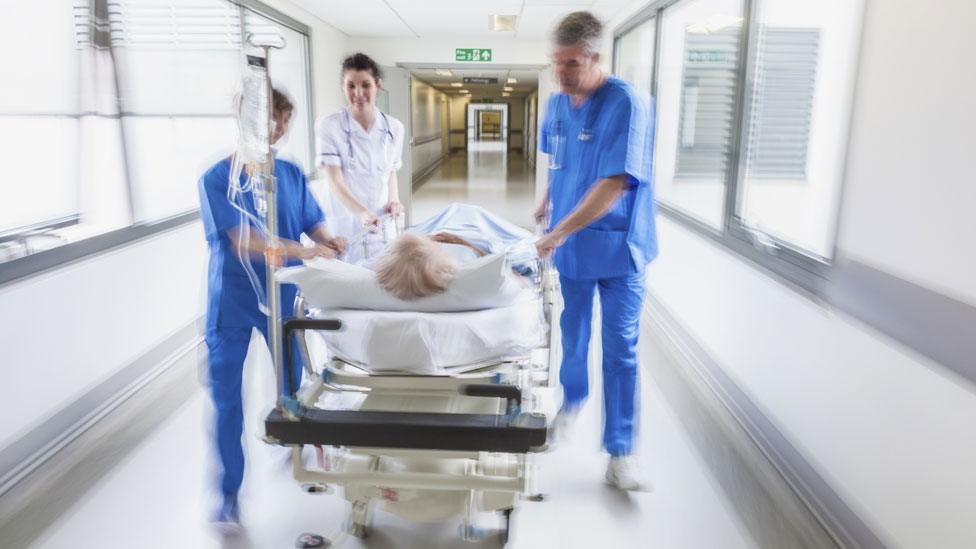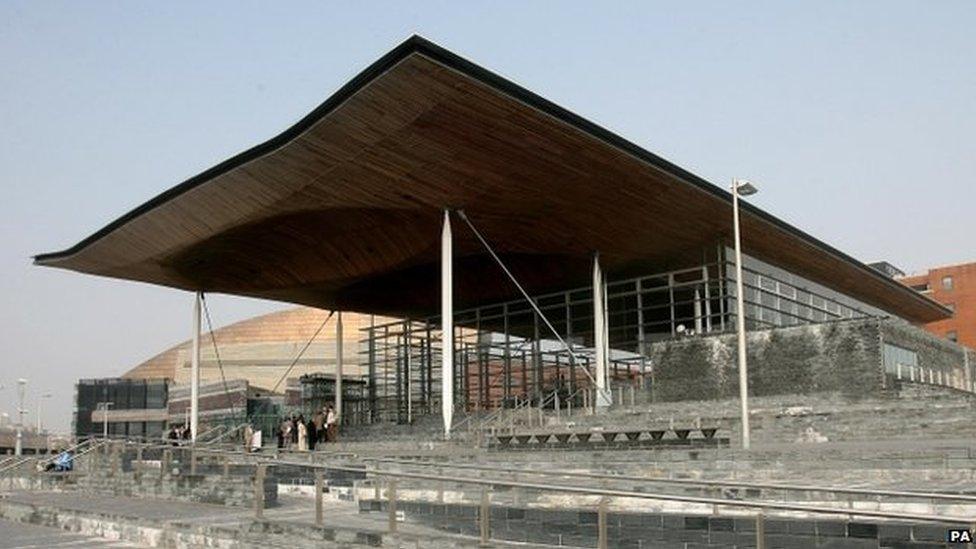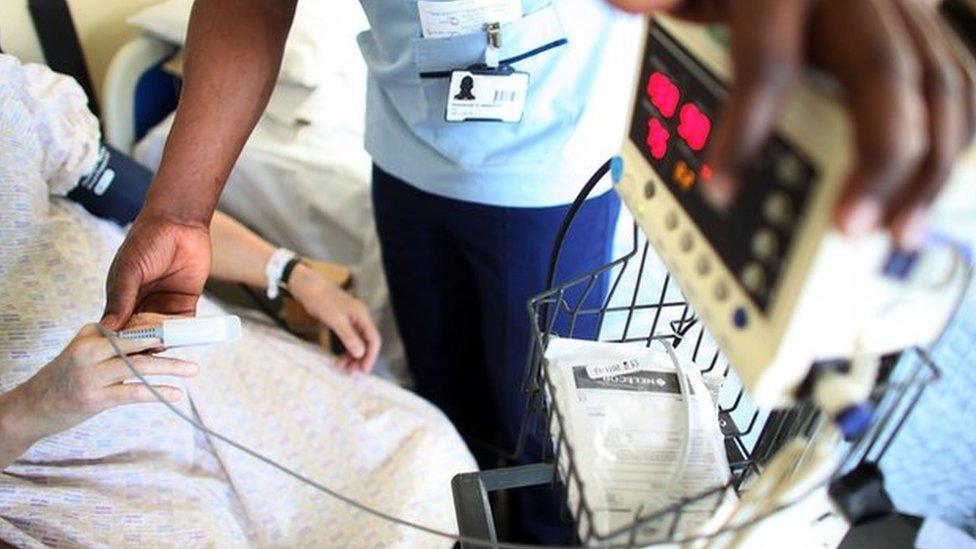Health manifestos - Welsh Liberal Democrats dissected
- Published

Health is arguably the most important issue for many voters at next week's Welsh Assembly election.
BBC Wales has asked some of the main medical and health organisations to give an examination to the parties' manifestos and give their critique of their policies.
Here is the dissection of the Welsh Liberal Democrats' manifesto:, external


The Royal College of Physicians , externalwelcomed commitments to:
Safe staffing levels and investing in primary care
Empowering patients through information and access to specialist advice
Extending the Health Technologies Fund to cover medicines
Integrated health and social care structures
Requiring health impact assessments on policy decisions taken at all levels
However, it was concerned:
A commission on the long-term future of the NHS could be a distraction from ongoing pressures and would need to be clinically-led to be effective
Abolishing Public Health Wales in a top-down reorganisation would divert resources from other public health priorities, including smoking, obesity and tobacco use


The RCN, which represents 25,000 nurses in Wales, said the manifesto matches its own Time To Care campaign , externalpriorities in the following:
Expanding the Nurse Staffing Levels Act to include maternity wards, mental health wards and community care teams.
Increasing the relative size of mental health spending to better match the needs of the population. The Lib Dems intend to legislate to ensure "parity of esteem" with physical health.
Ensuring schools have access to a nurse


The BMA represents 8,000 doctors in Wales.
Like
We will require health impact assessments (HIA) on policy decisions taken at all levels.
Legislating for mandatory HIAs would provide a significant contribution to improving the health and well-being of communities throughout Wales, at the same time as positioning Wales as a world leader in the application of public health policy.
When they have been undertaken, HIAs have helped to structure a systematic and objective approach to the development of certain plans, policies and projects in Wales. They have been successfully used to identify ways in which health benefits can be maximised and health risks minimised as schemes or policies have been taken forward.
HIAs have been successfully used to identify health inequalities, specifically in vulnerable groups, producing evidence-based recommendations for health improvement as well as identifying any gaps in service provision or delivery.
Their use has already proved that HIAs need not be overly burdensome. The first stage in the process can be a simple screening tool which determines whether an HIA would both be valuable and feasible within a particular decision-making context.
Dislike
We will abolish Public Health Wales and transfer responsibility and funding for public health to local government.
The transfer of public health to local authorities in England has led to considerable anxiety and chaos, both in terms of the immediate disruptive effects of the overhaul and in terms of concerns about the future of public health.
Considerable uncertainty remains over the present and future state of the workforce. Medical professionals are much less likely to want to work for local authorities. There are two main reasons for this: doctors perceive a lack of support for their skill set; they believe local authorities are likely to want to employ non-medical professionals for budgetary reasons.
BMA members in England report that several local authorities are reducing public health teams or implementing unfavourable terms and conditions for medical staff, making working in councils less attractive.


RCPCH is responsible for training and examining paediatricians and has more than 600 members in Wales.
It welcomed:
Commitments to reduce waiting times for children waiting for an appointment with Child and Adolescent Mental Health Services and to legislate for parity of esteem between mental and physical health - parity of esteem is something we have called for.
Commitments to develop a national workforce and training strategy, encompassing all professional groups that work within the NHS and social care, to ensure that staff are deployed and trained effectively and to tackle urgent recruitment and retention issues - we have called for the development of a strategic workforce plan which should include measures to address the child health and paediatric workforce.
Commitments to work with local government to roll out 20mph zones in residential areas, teaching every school child to safely cycle and to support children's opportunity to play in public places, for example by make it easier to close off roads temporarily for play - this is in line with our call that safer environments be created for children to walk, cycle and play in and particularly that local authorities be encouraged to introduce 20mph limits in built up areas.
It is concerned:
There are no plans for a Welsh Minister for Children to lead and take responsibility for policies affecting children, child rights and child health, or a commitment to an overarching child health strategy - something on which we would hope to be able to work with any future Welsh Government.
While we welcome a renewed focus and resources on youth smoking cessation services, we would hope to also see new national and local targets for reducing smoking rates specifically across all stages of pregnancy and early childhood.
The other responses can be found here:
- Published29 April 2016

- Published4 April 2016

- Published4 April 2016

- Published22 April 2016

- Published3 May 2016

- Published1 March 2016
